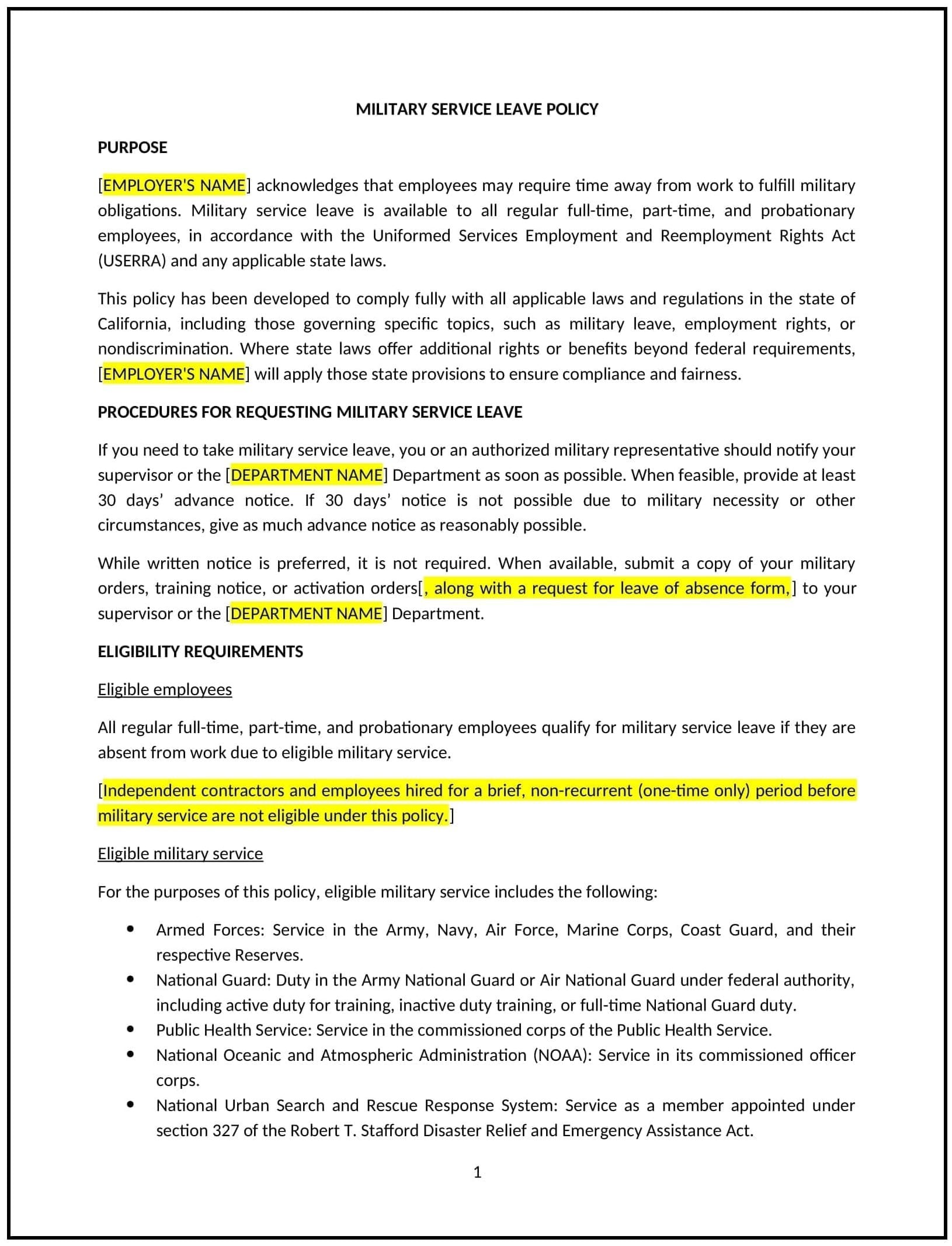Military service leave policy (California): Free template
Got contracts to review? While you're here for policies, let Cobrief make contract review effortless—start your free review now.

Customize this template for free
Military service leave policy (California)
In California, a military service leave policy provides businesses with guidelines for granting leave to employees who are members of the armed forces or reserves. This policy supports compliance with the Uniformed Services Employment and Reemployment Rights Act (USERRA) and California’s Military and Veterans Code, which protect the employment rights of service members.
This policy outlines the procedures for requesting leave, reemployment rights, and the business’s responsibilities to employees on military service leave. By implementing this policy, California businesses can demonstrate support for service members while maintaining compliance with state and federal laws.
How to use this military service leave policy (California)
- Define eligibility: Specify that employees who are members of the armed forces, reserves, or National Guard are eligible for military service leave.
- Outline leave procedures: Provide instructions for employees to notify the business of upcoming military duty and submit required documentation.
- Address benefits: Detail how benefits such as health insurance and retirement contributions will be handled during the leave period, in line with USERRA requirements.
- Communicate reemployment rights: Explain the employee’s right to reinstatement to their previous or equivalent position upon returning from service.
- Promote non-retaliation: Emphasize that employees will not face discrimination or retaliation for taking military service leave.
Benefits of using this military service leave policy (California)
This policy offers several advantages for California businesses:
- Supports compliance: Reflects USERRA and California’s Military and Veterans Code, ensuring lawful handling of military leave.
- Protects rights: Reinforces the employment and reemployment rights of service members, fostering trust and loyalty.
- Promotes fairness: Provides consistent guidelines for managing military leave across the organization.
- Reduces risks: Minimizes potential disputes or legal claims by adhering to state and federal requirements.
- Enhances reputation: Demonstrates the business’s commitment to supporting employees who serve in the armed forces.
Tips for using this military service leave policy (California)
- Reflect California-specific laws: Address additional protections under the California Military and Veterans Code.
- Train managers: Educate supervisors on handling military leave requests respectfully and in compliance with legal requirements.
- Maintain communication: Encourage open communication with employees on leave to provide updates and address questions about their return.
- Document processes: Keep detailed records of leave requests, approvals, and reemployment actions to ensure transparency and compliance.
- Review regularly: Update the policy to reflect changes in state and federal military leave laws or business practices.